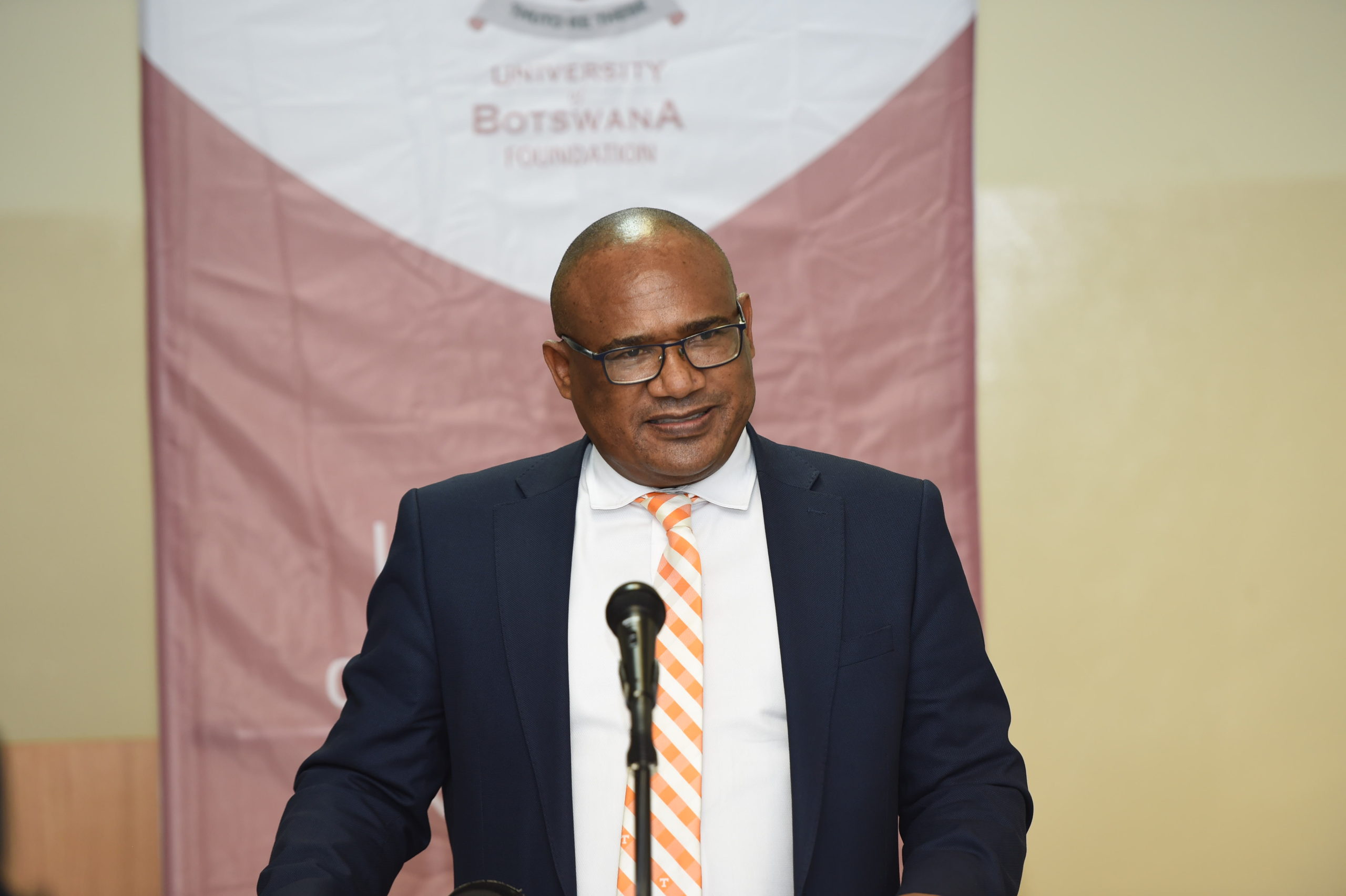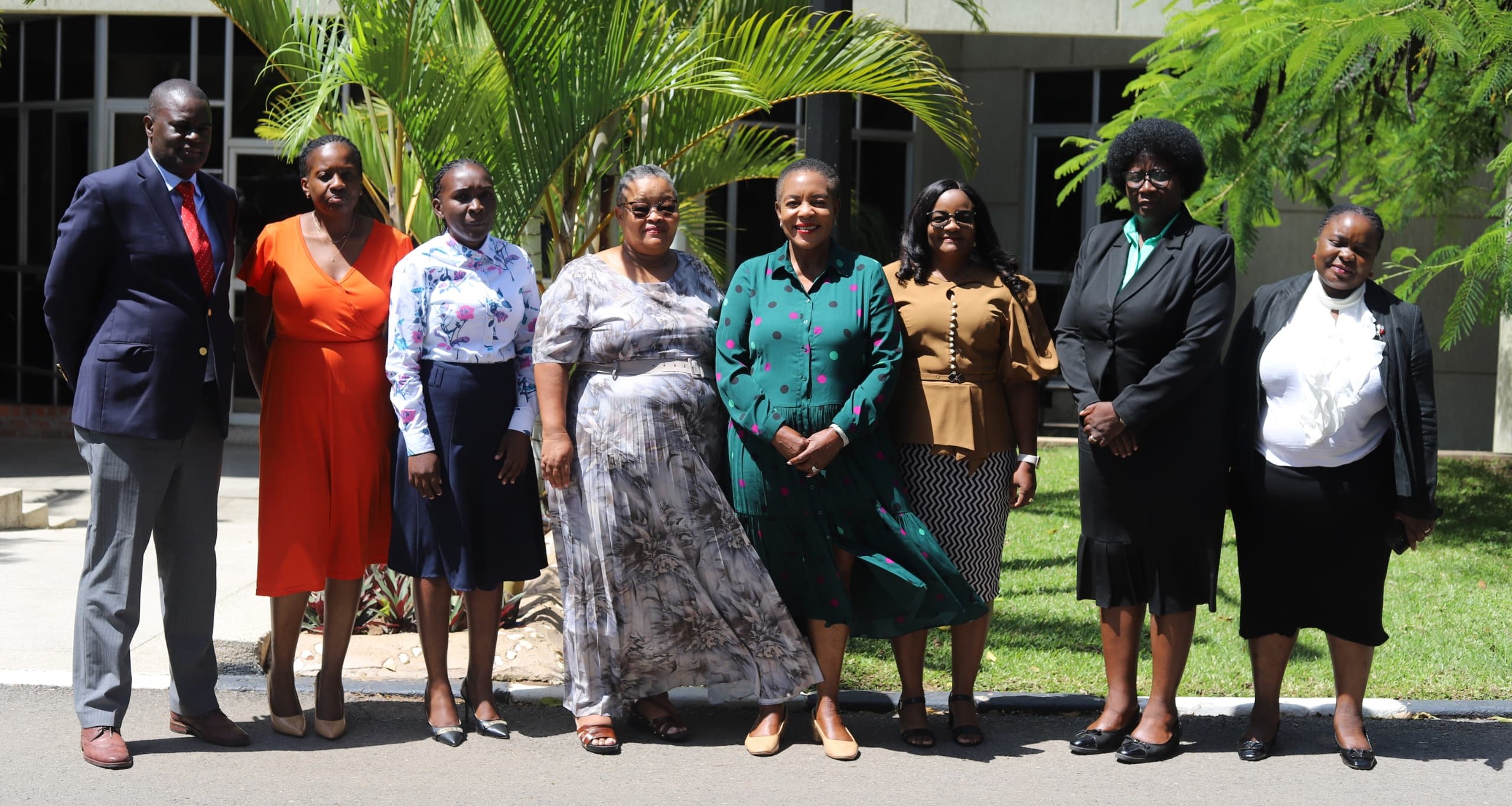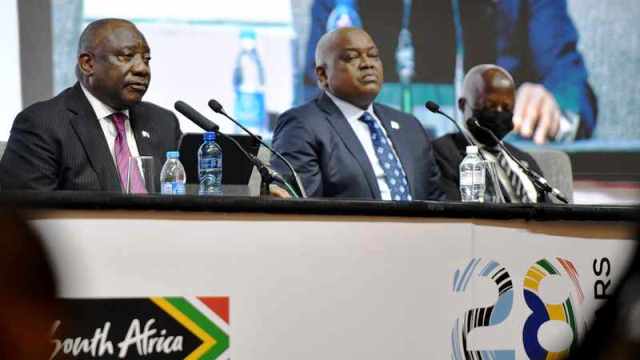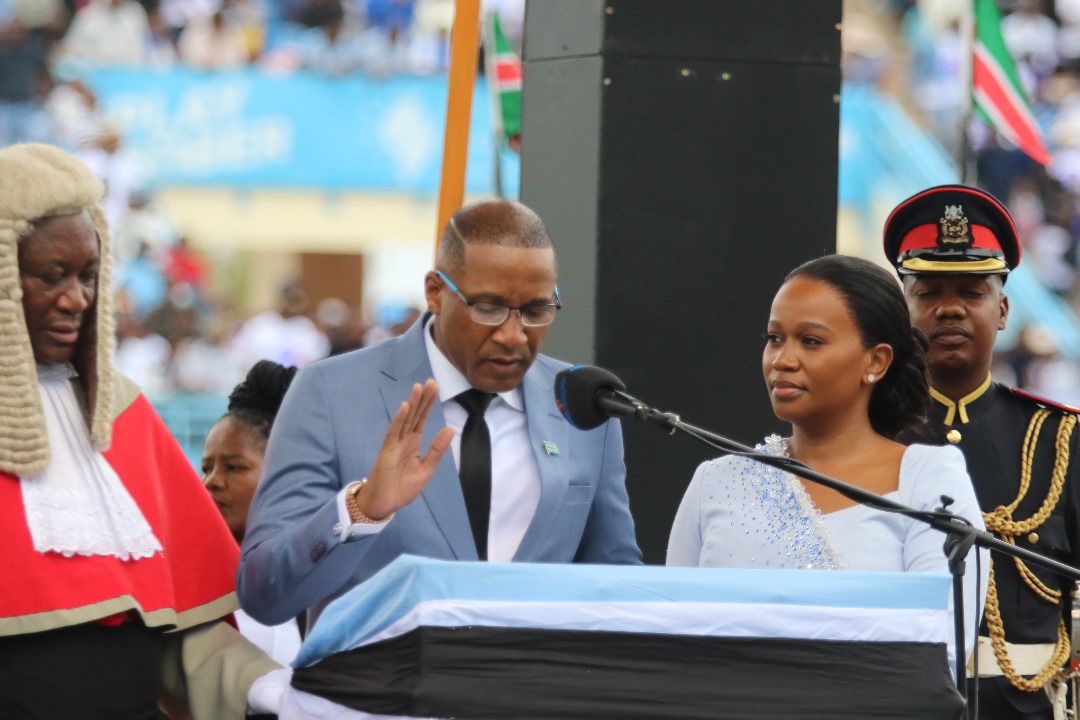
UB Vice Chancellor Prof. David Norris says the long engrained practices promoting deficient work ethics and ignoring mediocrity have to be done away with
Although the petition is not directed to me, I find it prudent to inform the nation what the real issues are particularly as the petition has been broadly shared with Batswana. The following are issues embraced in the petition.
The VC’S blurred Roadmap:
The University launched a new strategy that aims to direct UB’s focus towards impact on society. This direction has become more important now than ever before given that economies are increasingly powered by knowledge creation and intellectual capacity.

The University must therefore play a significant role in enabling Batswana to transition Botswana to an economy driven by knowledge capital. This has also become very essential given the battering unleashed by COVID-19 on the national economy.
As an institution of higher learning, it is upon men and women at UB to rise up and assist our society. The UB new strategy calls for intensified research and innovation and importantly relevance to society. We want a University that is globally recognised for academic excellence and certainly not a Local College.
The strategy calls for deepened efforts to increase the number of postgraduate (research) students. This means not only attracting local students but international students too. The University must compete globally for international students rather than wait for Botswana Government sponsored students.
For the University to be an academic Centre of Excellence means setting standards that are comparable to international standards. It calls for Professors that are internationally recognised for the quality of research.
The University’s new CAPRAS (CRITERIA FOR THE APPOINTMENT, PROMOTION AND REVIEW OF ACADEMIC STAFF) which has been developed by our excellent academic staff through a consultative process sets a number of standards for an academic staff member to progress through different academic ranks.
This includes parameters such as number of quality research papers published in reputable journals; amount of research funding generated; qualifications; societal impact etc.
You can’t aim to be a Professor at UB while only being recognised as a Lecturer by other Universities. You can’t have a research impact of two (2) or anything less than five (5) (measured as H index) and be promoted to a Professor position.
The CAPRAS document is designed to enhance scholarship and academic excellence and protect the quality of our national knowledge base of teaching and research and social engagement. It creates a balanced and evidence-based assessment of the key performance areas in each of these forms of service to the people of Botswana.
The progressive majority of University staff members have embraced this document. What excites me is that UB has highly regarded scholars who believe in excellence who will not be derailed by those insisting on condoning mediocrity.
The new roadmap is extremely clear and comprehensive but will unfortunately remain blurry to those who do not fit in a research focused institution of higher learning.
Salary Arrears:
I am fully committed to doing everything in my power for the comfort and improvement of staff wellbeing over and above just wages. I have worked and will continue to work constantly until I find a solution to these inherited challenges and I have already made advances.
To give perspective, when I joined the University of Botswana in December 2017, the University had a budget deficit of over P250 Million. By the end of the 2018/19 financial year we had cut the deficit to zero.
The University had a small surplus at the end of the 2019/20 financial year. These improvements in the University’s finances were due to the following actions that I rigorously implemented: Minimization of revenue leakages; Cost savings initiatives; Cuts on wasteful expenditure; Leveraging on University facilities to generate revenue; Proper award of post-retirement contracts; Increase in student enrolment numbers.
Because of this financial prudence, staff at the University of Botswana received salary increments of 3% and 4% during my tenure at UB since the end of 2017. These salary adjustments were sustained entirely by the University’s own coffers. The University Management had on several occasions approached the parent Ministry for support but this could not be provided as the Ministry faced equally severe financial challenges.
The Unions have always been fully aware of this state of affairs. It is highly disingenuous of them to present this issue as if nothing has ever been done. Had I not done my job, they would not now be enjoying a 7% salary adjustment.
I always want more for our staff members but the widespread financial situation does not allow me to achieve this entirely.
It is important to mention that as a University we have also been asked to show cause why we cannot raise funds for ourselves given the amount of resources (especially human resources) we have at the highest level of academia. Any university in the world depends on the creativity of its staff members to be competitive and to garner resources outside Government coffers.
This is more crucial now post-COVID where Governments the world over are wrestling with financial distress and look to Universities to assist by sustaining themselves financially. This is the time that UB staff (Professors in particular) should be coming forth with externally funded research, consultancies and other third stream income generating activities.
It is time to attract international students by offering attractive degree programmes and through proper supervision of postgraduate students – this will create another avenue of income generation for the University. Universities in many countries derive between forty and sixty percent of their revenue from the academic activities of their staff.
UB third stream income generation currently contributes less than five percent. Some of the staff members endorsing petitions hardly come to work, they are excessive users of sick leave, they undertake private work using University resources and some even run their personal businesses from their offices during working hours. They add zero value to the institution. My administration will not allow this.
I need to mention that Government support (subvention) for the University has been further reduced by fourteen percent or P127 Million this year. All Government Departments and Parastatals experienced this reduced support which is clearly attributable to the significant negative impact of Covid 19 on the economy.
This should propel us as an institution to use our massive resources to generate funds for our financial stability and sustainability and for that of the nation. The Union leadership must take an equal responsibility in this urgent drive to sustain ourselves. The University is a cherished asset of this Nation that we are honoured to be custodians of: it’s not a plaything for narrow interests.
The times require a concerted effort by all and are not the occasion to sow idle dissent. It is alarming that this petition comes at a time when each member of our nation is grappling with unprecedented uncertainty and hardship. The Union Leadership should prevail in its role to advance solutions that can assist Management to mitigate against the effects of economic and psychological hardship that we are each equally facing.
Corporate Governance:
A transformational core of the new strategy needs new ways of understanding and doing things. It should be obvious therefore that the long engrained practices promoting deficient work ethics and ignoring mediocrity have to be done away with. It is to be expected that this will disconcert all those who want to defend the cynical culture of doing little.
We cannot exempt cartels of personal comfort seekers from the realities of urgent change. There cannot be partial exemption from the fair rules of Corporate Governance. My administration is working within the powers of the mandate that this nation has entrusted its National University with.
Obviously those who are calling for my head do not recognise corporate governance or care to know how a university continues to function in the era of severe global reorientation.
Deplorable Teaching and Learning Resources:
In every progressing organisation there will be ageing resources and requirement for refurbishment or replacement but the reality is that this University remains the most resourced in the country. Government has made it plain that there are no funds and I have no reason to doubt that. We can’t forever be lamenting that we are not getting support when public sector spending has been forced to record lows across the board.
The only question should be how we will leverage on our resources to generate the income we need for the University. That’s the question I’m working on answering and complaining, blaming or despairing will not take me any closer to my goal.
The truth is that many of those who make noise hardly use these resources for the good of the University let alone their own professional development. Our own internal research funding is never utilised by these very people but they are the first to say the country doesn’t have a national research fund or industry to source funding from.
The accusations of managerial dictatorship, staff victimisation, appointment of staff without following due processes, among others are not worthy of my response as they are blatant untruths. The problem that surely exists at UB is that there’s no consequence management.
Some staff disappear from work or do very little but their line managers never act and instead these line managers would rather victimise the hard working staff members.
The bottom line is that while I’m the Vice-Chancellor at the University of Botswana, I’ll not shy away from advocating for excellence in what we do as a Premier University in our country. We are expected to take a lead and be an exemplary institution after the nation has invested so much in developing us for the privileged role we occupy.
If the University is uncomfortable for those who have lower expectations of themselves, they should not be embarrassed or evasive but simply feel free to withdraw.
I’m not an ‘Outsider’ as branded by some xenophobes within the ranks of the Union Leadership. I am, as everybody knows, an alumnus of the University of Botswana and I am of course a Motswana. It’s laughable, as well as abrasive against the norms of this nation, that I am labelled as unfit to be at the helm of this University because I am not an “insider’ and grew professionally in a scholarly universe wider than UB. What kind of dangerous path is this thinking on and what kind of stigmatising precedent does it seek to set?
Achievements under my Administration
Apart from the strategic direction that we have set for the University, we are already making strides in our transformational agenda.
A number of Policies, Plans and Reporting Frameworks that support effective implementation of the strategy have been developed under my leadership and these include:
a) University Planning Policy which sets out the framework, processes, and procedures for developing, implementing, monitoring, evaluating and reviewing the university strategy and supporting plans.
b) Monitoring and Evaluation Framework for measuring and assessing institutional performance.
c) University Risk Management Framework
d) Annual Corporate Plan
e) University Strategy Execution Plan
f) Institutional Performance Reporting Framework
Data Management and Analysis
For a number of years, the University did not collect, manage and analyse data for decision making and business intelligence. The University has embarked on a comprehensive program to audit data in order to identify gaps and improve quality. The Institutional Office is being reconfigured to include new capabilities of data analytics, informatics and business intelligence.
Performance Reporting
Management has now put in place performance reporting mechanisms that include Mid-Term Review Report; Annual Performance Report, Bi-Annual Monitoring Report and the Vice-Chancellor’s Progress Report.
Alignment of Policies and Regulations
Refinement of the UB General Conditions of Service is underway to efficiently align and harmonise University processes, procedures and policies with the UB Act and Statutes.
Attaining Excellence
In support of the University’s new performance targets anchored in research and innovation, Criteria for Appointments, Promotions and Review of Academic Staff (CAPRAS) and Revision of the Academic Organisational Structure (RAOS) are already approved by Council.
The already implemented CAPRAS document enhances scholarship and academic excellence by creating a balanced and evidence-based assessment of the key performance areas of teaching, research and social engagement.
Communication
In the past the University’s competitive standing was declining. This is being addressed through a range of communication and marketing initiatives. The University is actively engaging and strengthening its relationships with its stakeholders. A University-wide Communications and Marketing Plan has been developed.
The university’s web presence is an important precursor to choosing this campus. The University of Botswana website has had several obvious deficiencies. Now it is revised to be more user-friendly, informative and visually appealing. In addition, research focus areas of academic staff have been added to enhance attraction of postgraduate students and research collaborators.
Student Numbers
In the past UB has been challenged to enroll a full quota of students at both undergraduate and post graduate level. By addressing the needs and expectations of its Stakeholders the university has increased in student enrolments from 11000 to 15000 students since 2017.
Our efforts to attract postgraduate students are also beginning to bear fruit. From 1448 postgraduate students in 2017/18, we have increased now by 24% to 1791. As a total of the student population, the PG student proportion rose from 9.6% (2017) to 12% (2020/21).
This is a small but important initial increase which will be augmented by the decision to offer postgraduate scholarship to increase PG attractiveness. Senate in its most recent sitting approved the policy on provision of scholarships to postgraduate students.
Quality Academic Degree Programmes
The University has embarked on extending the foundations of academic quality and relevance. The programme qualifications mix and the academic profile of the University are under analysis and efforts to empower graduate productivity and employability are priorities.
The University of Botswana is reviewing its programmes in anticipation of the new labour market demands as well as promoting emergence of economic diversity and professionalised self-employment.
A number of new qualifications that respond to contemporary policy, market and skills development demands have been approved while others are being reviewed and improved including programmes to strengthen the implementation of multiple pathways that is part of ETSSP.
Accreditation with International Bodies
Accreditation of degree programmes by professional and statutory bodies is a mark of quality assurance that specific standards are met. Importantly, accredited programmes particularly by internationally recognised bodies address the needs of employers and students, and provide marketing advantages for universities.
Under my leadership the University has been constantly active in achieving accreditation of our programmes by both local and international professional bodies.
Applied Research and Innovation
Efforts by the University of Botswana especially during the current Covid 19 period have demonstrated that domestic innovation and production is possible. As a response to the Covid-19 pandemic, UB produced hand sanitisers, designed and produced clinically sound ventilation hoods for patients with acute respiratory failure as well as face masks and shields for frontline health workers. The ventilator is already at an advanced stage of its testing.
These innovative measures address real world challenges encountered by communities, industry and government. They are evidence that my efforts of encouraging UB to undertake multitiered research whose findings can be translated into products and services are bearing fruit. Further examples of research projects that address real life challenges include:
* COVID19 Respite Products
* Biofuels Research Project – Biodiesel and glycerol production
* Development of various medical implants using Additive Manufacturing
* Tyre recycling Research and Development project
* Bioactivity and nutritional studies of plants extracts
* Development of pharmaceuticals based on compounds isolated from medicinal plants
* E-Health Project – Development of online platforms for remote Doctor-Patient consultations and prescription
* SARS CoV-2 Genomic Epidemiology: genomic surveillance of SARS-CoV-2 will be used to evaluate how interventions are affecting virus evolution and inform decision making going forward.
* RH2 Approach to HIV vaccine development
Research Management System
For too long, the University focussed on teaching, without due facilitation of research, consequently, the Office of Research Development remained elementary. Platforms to manage the pre-award, post-award, and publication phases of a research grant or contract did not exist and processes were tedious, manual and slow.
The Research Management System (RMS) has now been sharply upgraded and the UB research community appreciates the ease with which they can now apply online for grants.
ORD now uses citation-tracking databases to measure research performance of academic staff and the research standing of the University.
University Ranking
In 2020, the University for the first time, submitted its data for inclusion in the influential Times Higher Education (THE) University World Rankings Survey. UB achieved an overall ranking of 27th in Africa and 1006 in the World.
Research was assessed in terms of productivity and impact through a bibliometric analysis of the University publications sourced by the THE partner Elsevier from the Scopus database. Before participation in the ranking surveys, a number of higher education publications had ranked the University as number 43 in Africa.
Stakeholder Relationships and Engagement
As a comprehensive institution, engagement is central to the mission and strategic intent of the University. In the past, engagement was mainly undertaken as an ancillary activity and not institutionalised as a strategic core commitment of the University.
The new Strategy requires a fundamental transformation of the University to establish meaningful sustainable and impactful intellectual, economic, and social connections with the public as well as being the think tank and engine for economic development and societal transformation.
Under my leadership, the University has proactively initiated interactions with government ministries, parastatals, industry, civil society and communities. These interactions have resulted in many new partnerships and collaborations formalised in agreements such as MOUs and MOAs.
Enterprise Strategy
The key to reducing financial risk and ensuring the financial sustainability of the University is by diversifying its sources of revenue consistent with its new Strategy. The University under my leadership has therefore developed an enterprise strategy whose key objectives are:
• Formulate a long-term sustainable response to institutional financial constraints.
• Generate a third income stream for the University.
• Draw synergies from existing resources and optimise opportunities towards economic self-sustenance.
• Enhance staff and student entrepreneurial ability and employability.
• Strengthen engagement with business sectors and the community.
This strategy is to be submitted to the next sitting of Council for approval and is ready for full implementation.
Revenue Generating and Cost reduction Projects
There are ongoing projects that hold potential to generate revenue and reduce costs in the short to medium term:
1. The University Clinic has been registered as a company and will open its doors to staff. We expect to receive an operating licence from the Ministry of Health soon.
2. A number of our labs are being prepared for accreditation so that they can be used to generate income
3. The full utilisation of University Hotel and Conference Centre
4. A High Performance Sports Centre has been established whose offering to professional athletes from all over the world is delayed only by the Covid travel restrictions
5. Refurbishment of the University Stadium
The above achievements are evidence that the University is moving in a purposeful and effective direction. Despite the many challenges we have faced (and continue to face) including the Covid-19 pandemic and the paucity of strong leadership in some University Divisions, I am confident that we secured the paths for positioning the University to offer greater service to this nation and to the world.
I wish to applaud our many staff members who are working hard and dedicated to taking this University to greater heights despite the global challenges. Keep up the brave work and ignore the distractions of the few who wish to turn our Great Institution into a Local College.
I am, as I have always been, dedicated to hear all genuine concerns of staff members as I continue on my mission to ensure an inclusive and conducive working environment for all of us.









